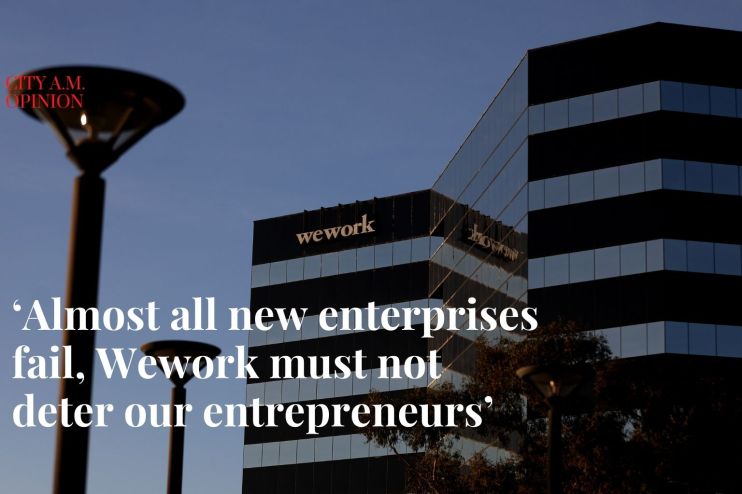Brits are afraid of failure, and the flop of Wework will deter future entrepreneurs

Failure is part and parcel of innovation, corporate failures must not make Brits more risk-averse, Paul Ormerod writes.
The conviction of Sam Bankman-Fried (SBF), founder of cryptocurrency exchange FTX, on multiple charges of massive fraud last week throws the spotlight once again on the risks of investing in high-tech ventures. FTX attracted vast amounts of investment from venture capital and grew spectacularly. But from being feted in the financial press and courted by top ranking politicians, SBF’s personal worth collapsed from $14bn to zero in little over a year.
Similarly the journey of Wework, while there is no suggestion of any wrongdoing, represents another example of a company which, after promising an exciting new future not long ago, now faces collapse. Wework was meant to revolutionise the office rentals market and attracted huge amounts of venture capital, with Softbank alone investing $4bn. But the value of the company had fallen 99.9 per cent from its $47bn peak before it filed for bankruptcy in the US yesterday.
Hindsight of course makes financial geniuses of us all. Wework, for example, took out long leases on buildings and filled them with flexible short-term lets. How obviously stupid! It took off because the executives sold a vision to hard-nosed, very smart venture capitalists which persuaded them to invest.
Entrepreneurship by its very nature requires a vision. The whole essence of the concept is to create something which previously did not exist and which people did not know they wanted.
Even companies which go on to become very successful often stand on the precipice of failure in their early days. Google, for example, was rescued by a last minute injection of £8m – million not billion – when it was only just beginning to get going.
Failure is in fact the distinguishing feature of entrepreneurial ventures. Almost all new enterprises fail.
This phenomenon is not confined to the modern world. For example, intellectual ferment and fervour was at its height in Renaissance Italy, and nowhere more so than in Venice, centre of a vast network of international trade. In 1469, twelve companies were engaged there in the new activity of printing, but by 1472 nine of them had failed.
Likewise, in the first two decades of the 20th century there were almost 2,000 firms involved in the revolutionary new technology of automobile production in the US. Over 99 per cent disappeared.
Concerns about the impact of innovation on jobs, as in the case of AI, are also not new. To take another example from the past, in the middle of the 19th century the railways rapidly destroyed the entire stagecoach industry. Tough on the drivers, on the horse-related businesses which the coaches needed, on the inns which served the routes. But society as a whole was a massive beneficiary of the new technology.
Policymakers have to strike a difficult balance. They need innovation to generate the growth which creates a flow of extra monies for the public purse. But they face relentless criticism if the state backs anything which fails. And they have to try and ensure reasonable protection of existing firms and jobs.
Yet the plain fact is that in the UK and across Western Europe, the balance tilts far too much to risk aversion, to not investing in innovation, to protection of the existing order rather than promotion of the new.
Supporting innovation is not just an economic policy, it is a social one as well. It is the only sustainable way of financing the increasing demands which are placed upon the welfare state. Whoever forms the next government must shift the balance in its favour.
